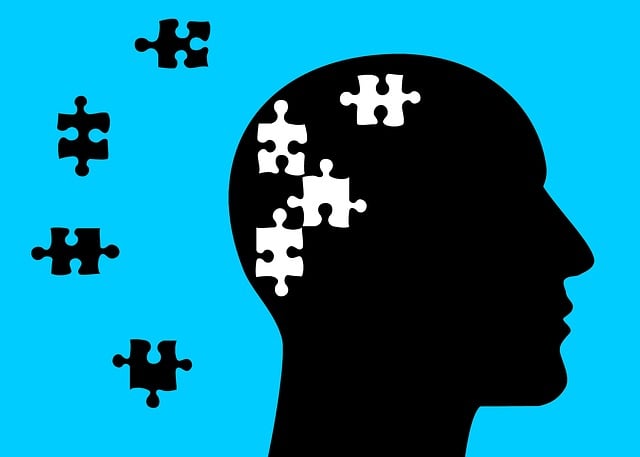In a fast-paced world, mental health crisis hotlines have become vital resources for young adults grappling with anxiety, depression, and codependency. These hotlines offer confidential support, immediate guidance, and safe spaces for expression, empowering individuals to develop inner strength and connect them with tailored therapy options. Specialized therapists address codependency through individual/group sessions, promoting emotional processing, trigger exploration, and healthy coping mechanisms. Accessing hotline support with effective communication and self-care practices is a brave step towards managing anxiety and preventing depression. Long-term mental health support involves CBT, group therapy, emotional well-being promotion, mindfulness, and cultivating emotional intelligence for sustained recovery, especially when addressing codependency issues.
In today’s fast-paced world, mental health crises are on the rise among young adults. Recognizing this growing need, crisis hotline support services have become invaluable resources. This article explores the multifaceted role of these hotlines in addressing pressing issues like codependency, a prevalent challenge for young adults seeking guidance. We delve into effective strategies for accessing therapy, understanding its importance, and long-term recovery paths. By shedding light on these services, we aim to empower individuals facing mental health crises with the necessary tools for healing and growth.
- Understanding the Need for Crisis Hotlines
- The Role of Therapy in Supporting Young Adults
- Codependency: A Common Challenge for Young Adults
- Accessing and Utilizing Hotline Services
- Long-term Support and Recovery Strategies
Understanding the Need for Crisis Hotlines

In today’s fast-paced world, mental health crisis hotline support services have become an indispensable resource for young adults navigating through personal struggles and emotional turmoil. The need for these hotlines is stark, given the rising rates of anxiety, depression, and other mental health disorders among this demographic. Many young adults might not have access to traditional therapy or feel comfortable discussing their issues with loved ones, making crisis hotline services a confidential and easily accessible option. These hotlines provide immediate support, offering a safe space for individuals to express their feelings and receive guidance on managing crises.
The significance of mental health crisis hotlines is further highlighted by the challenges faced by those dealing with codependency, a common issue that often co-occurs with other mental health disorders. Crisis hotline professionals are trained in stress reduction methods and can conduct initial risk assessments for mental health professionals, ensuring proper care. By fostering inner strength development, these services empower young adults to take proactive steps towards their well-being and, if needed, connect them with appropriate therapy options tailored to their specific needs.
The Role of Therapy in Supporting Young Adults

For young adults grappling with mental health crises, therapy plays a pivotal role in their journey towards healing and recovery. Many young people face unique challenges, such as codependency issues stemming from complex family dynamics or social pressures. Professional therapists are trained to provide specialized support tailored to these age-specific concerns. Through individual or group therapy sessions, they create safe spaces for young adults to process emotions, explore triggers, and develop healthy coping mechanisms. This therapeutic environment encourages self-discovery, fosters emotional well-being promotion techniques, and helps individuals build resilience.
Community outreach program implementation has become an effective strategy in reaching this demographic, addressing mental illness stigma reduction efforts, and ensuring accessible support. By integrating therapy into these programs, young adults can receive the help they need while also engaging with their communities. This holistic approach combines personalized treatment with social connection, acknowledging that emotional healing is often enhanced by peer support and a sense of belonging.
Codependency: A Common Challenge for Young Adults

Codependency is a significant challenge many young adults face today. This complex emotional issue often develops when individuals become overly reliant on others for validation and support, sometimes as a coping mechanism to deal with their own struggles. In the context of mental health crises, codependent behavior can exacerbate existing issues or trigger new ones, particularly in young adults who are still developing self-identities and independence.
For young adults seeking therapy, addressing codependency is crucial for fostering healthy relationships and enhancing emotional well-being. Self-awareness exercises and emotional well-being promotion techniques can help individuals understand their triggers and develop healthier ways of interacting with others. Additionally, stress reduction methods play a vital role in breaking the cycle of codependency by teaching individuals to manage their own stress levels effectively, thereby reducing reliance on external sources for support.
Accessing and Utilizing Hotline Services

Accessing hotline support services is a crucial step for many individuals seeking mental health assistance, especially young adults grappling with codependency issues. These 24/7 resources are designed to provide immediate solace and guidance during crises. One can reach out via phone or online platforms, ensuring anonymity if preferred. The process often involves sharing personal details, symptoms, and the nature of the crisis; trained counselors then offer tailored support.
Utilizing these services effectively requires honesty and openness. Communication strategies taught by therapists specializing in codependency can be invaluable during hotline interactions. For instance, expressing emotions clearly, setting boundaries, and practicing self-care techniques learned in therapy can enhance one’s experience on such hotlines. Remember, seeking help is a brave step towards anxiety relief and depression prevention, and these services are a vital first response when navigating turbulent mental health landscapes.
Long-term Support and Recovery Strategies

Long-term support and recovery from mental health crises often involve a multifaceted approach tailored to individual needs. For young adults, therapy plays a pivotal role in navigating complex emotions and experiences. Cognitive Behavioral Therapy (CBT), for instance, equips them with tools to challenge negative thought patterns and develop healthier coping mechanisms. Group therapy sessions can also foster a sense of community and shared understanding, addressing feelings of isolation commonly associated with mental health struggles.
Complementing therapeutic interventions, strategies focused on emotional well-being promotion techniques and self-care routine development are instrumental. Encouraging regular exercise, mindfulness practices, and adequate sleep enhances resilience and empowers individuals to take proactive steps towards managing their mental health. Cultivating emotional intelligence further aids in recognizing and regulating emotions, fostering healthier relationships and improving overall psychological flexibility, thereby contributing to sustained recovery.
In light of the growing importance of mental health awareness, crisis hotline support services play a pivotal role in assisting young adults navigating codependency issues. By providing accessible and confidential therapy, these hotlines offer much-needed guidance and care. Understanding the unique challenges faced by young adults, from codependent relationships to the pressures of adulthood, enables therapists to deliver tailored interventions. Accessing hotline services can be a game-changer, offering immediate support and long-term recovery strategies. Ultimately, fostering resilience and empowering young adults to seek help is key to breaking down barriers and promoting better mental health outcomes.










